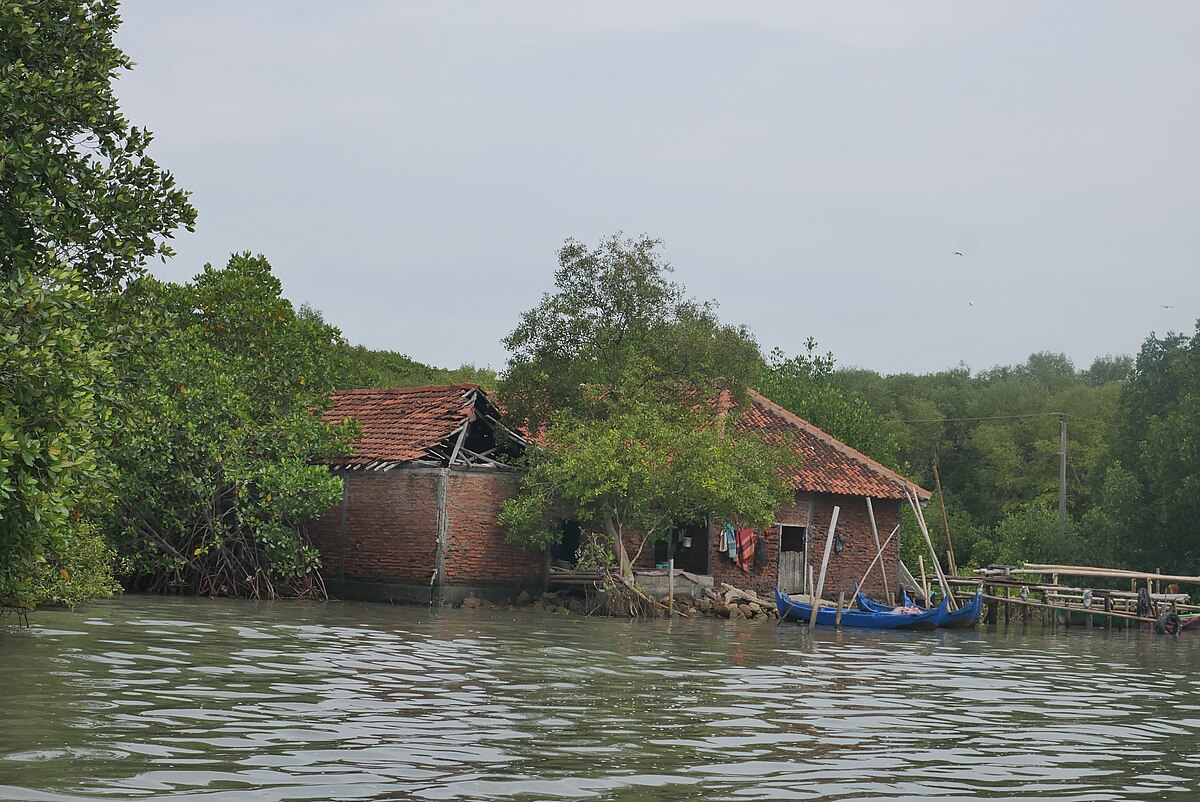Thursday, July 31, 2025
This article requires pre-publication review by an uninvolved reviewer (one not substantially involved in writing the article). –Article last amended: Jul 31 at 14:22:04 UTC (history) |
| This article requires pre-publication review by an uninvolved reviewer (one not substantially involved in writing the article). –Article last amended: Jul 31 at 14:22:04 UTC (history) |
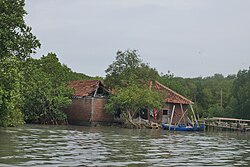
Every morning, Ihwanudin wades through brackish water that now floods the streets of his village. With a bundle of mangrove seedlings in one hand and a sack of collected plastic waste on his back, he walks toward the shoreline of Bedono, a coastal village in Sayung, Central Java. For him, each seedling planted is an act of resistance, and a quiet promise to the land that raised him.
Bedono has become one of the most severely affected coastal areas in northern Java. Since 1985, its shoreline has retreated drastically due to land subsidence, mangrove deforestation for shrimp farming, and large-scale reclamation projects in nearby Semarang. In just the past two decades, more than 200 buildings have disappeared beneath the sea, leaving only remnants of roads and submerged memories behind.
While many residents have relocated, Ihwanudin chose to stay. Since 2017, he has been actively restoring the degraded coastline by planting mangroves in tidal zones. His mission is to rebuild the ecosystem’s natural defenses, mangroves that protect against erosion, store carbon, and shelter marine life.
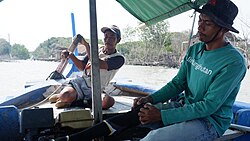
“Every seed I plant is a hope for tomorrow,” said Ihwanudin, who daily wades through shallow waters collecting plastic waste and inserting seedlings into muddy soil.
Just a short distance from where Ihwanudin plants, a small house stands on elevated foundations, raised three times over the years to stay above the tide. Inside lives Pasijah, better known as Mak Jah, the last resident of Dusun Rejosari Senik, a hamlet that now lies almost completely underwater. For over two decades, she has stood her ground, surrounded by water but rooted in purpose.
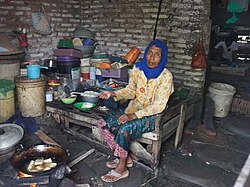
Mak Jah began planting mangroves in the early 2000s with her late husband, determined to protect what little land remained. While neighbors moved inland, she stayed behind, collecting mud for seedling polybags and nurturing Rhizophora and Avicennia mangroves by hand. Some of her plantings were washed away, but many still grow around her home, now a small sanctuary for birds, fish, and crabs. In early 2022, she endured a storm so fierce she couldn’t sleep for three nights, worried the waves would break through her roof. But still, she stayed. “As long as I can keep planting, I will. This work is never in vain,” she said.
Her quiet resilience has earned national recognition. In 2021, Mak Jah received the Kalpataru environmental award from the Governor of Central Java. In 2023, she was honored by First Lady Iriana Jokowi on Kartini Day. Since 2017, she has also served as a community nursery partner with LindungiHutan, an Indonesian environmental start-up focused on forest conservation and community empowerment.
Ihwanudin’s efforts have also grown into a movement. Through LindungiHutan, he now works with individual donors, companies, and brands to plant mangroves and raise environmental awareness. As of July 2025, over 200 reforestation campaigns have taken place in Bedono, resulting in the planting of more than 98,000 mangrove seedlings across four hectares. Most of the seedlings are Rhizophora species, known for their ability to stabilize land, filter pollution, and speed up sedimentation.
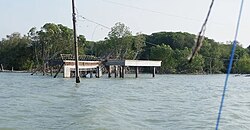
Despite these successes, challenges remain. Ocean currents carry plastic waste into the mangrove zones, where it often entangles young roots and slows ecosystem recovery. Ihwanudin stresses that collective support is essential. “We need help, including manpower, funding, and seed donations. This isn’t just about Bedono. It’s about protecting all of Indonesia’s coastlines,” he said.
LindungiHutan has called on the public to support Bedono and other vulnerable coastal villages, emphasizing that small actions, such as planting a tree, can lead to lasting change.
About LindungiHutan
LindungiHutan is an Indonesian environmental platform that promotes forest conservation and community empowerment. With over 1 million trees planted across 30+ locations, the organization partners with more than 600 brands and businesses. Their programs include Corporatree, Collaboratree, and Carbon Offset initiatives.
This article is based on a press release provided by LindungiHutan on July 7, 2025.


